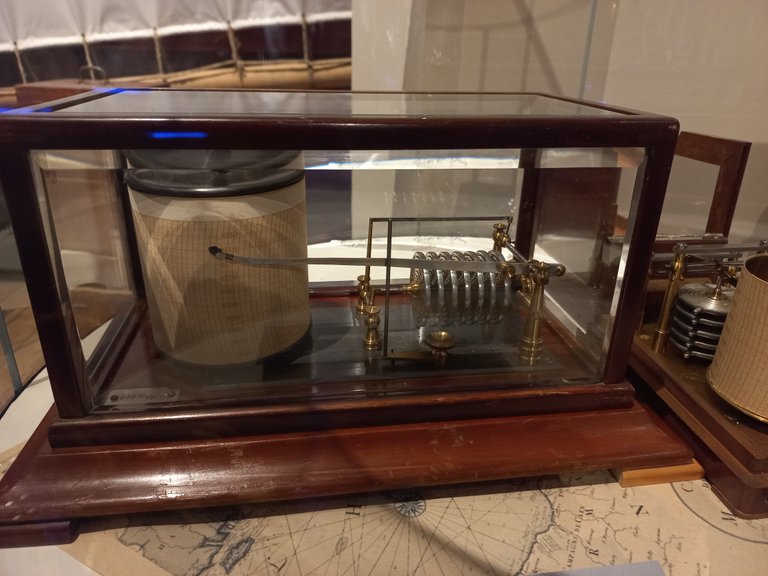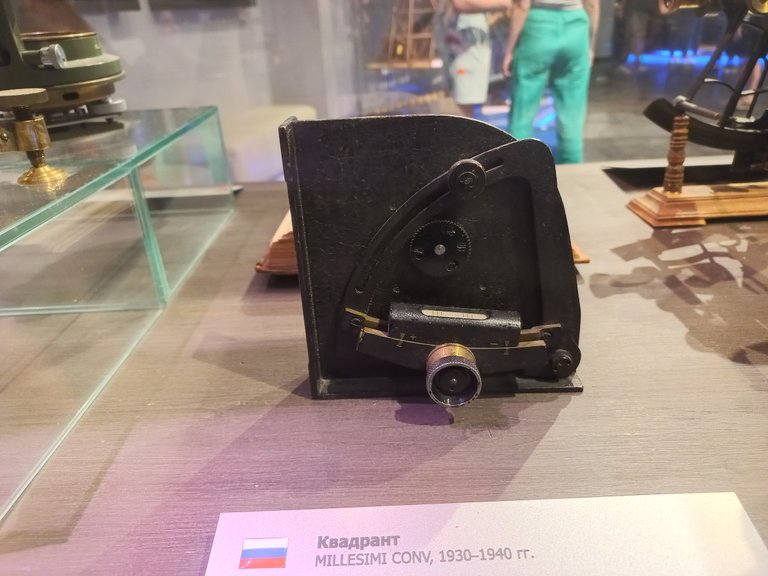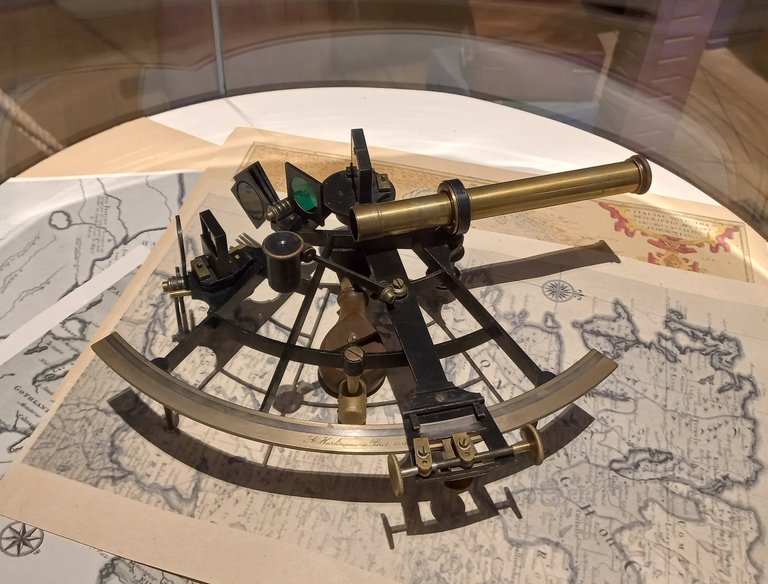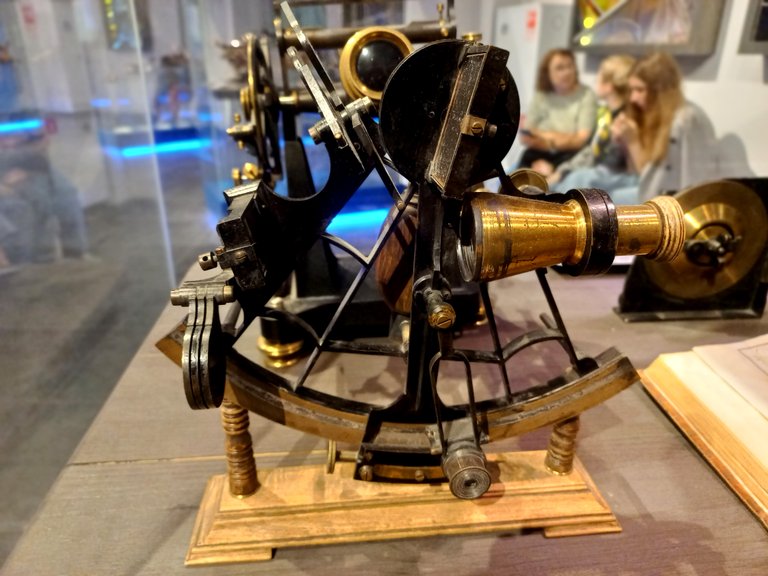Hi.
If you have the opportunity to visit the Moscow Planetarium, then be sure to buy a ticket to its branch called Urania.
This is such a museum, small in size, but very full of various antique devices.
All the devices are behind glass cases, they cannot be touched (but this is correct, otherwise nothing will be removed from them). But they are very clearly visible, it is convenient for them to photograph them.
For example, here is such a device, it is called a barograph:

Its name is formed from two Greek words that can be translated as "Heaviness" and "writing". It turns out something like "I write under weight" or "I write down the gravity readings." In fact, it is a device for continuous recording of atmospheric pressure readings. In particular, it was used by travelers on balloons, with its help they could fix the altitude of the flight.
Or another such ancient device called a "square":

It also has another name - "sextant". It was used to determine the height of celestial bodies above the horizon. This made it possible to calculate the geographical coordinates of the place where the measurement is being made.
For his school, it is 60 degrees or a sixth of a full circle, which is why it is called a "sextant" from the Greek word "six".
Another sextant, of a later modification. Even without understanding how to use it, it's just nice to look at its device, consisting of shiny tubes, scales, cogs and other small parts.

And this sentant, it seems to me, is not only a device, but also a real work of art. Just look at this splendor!

Of course, no one uses these devices anymore, we determine our location using the GPS system, which is linked to satellites in geostationary orbit. But I wish I could learn how to use them!
when i was racing offshore sailboats from new england to bermuda in the 1970s-80s we used such a sextant to navigate. i haven't followed the offshore racing circuit for years but i am quite sure boats using GPS still receive a significant negative handicap. these are amazing tools and are still in use today. any captain or navigator sailing the oceans should be proficient in their use because, aside from keeping old traditions alive, in the event of failures in the electrical system on board the only way to know where you are and what compass course to take is to by using a sextant together with a precise clock, knowledge of the stars, sun and moon and charts and tables. it is not hard to learn but it takes practice to become proficient. my father passed his sextant to me and i recently passed it proudly on to my son.
You have an amazing experience! And it is a very good tradition to pass on the sextant by inheritance. I completely agree that nowadays people have become too dependent on electrical appliances, the reliability of which is questionable (especially in extreme conditions). The simpler the device is, the more reliable it is. And GPS, even in urban conditions, gives errors of several hundred meters.
Thank you!